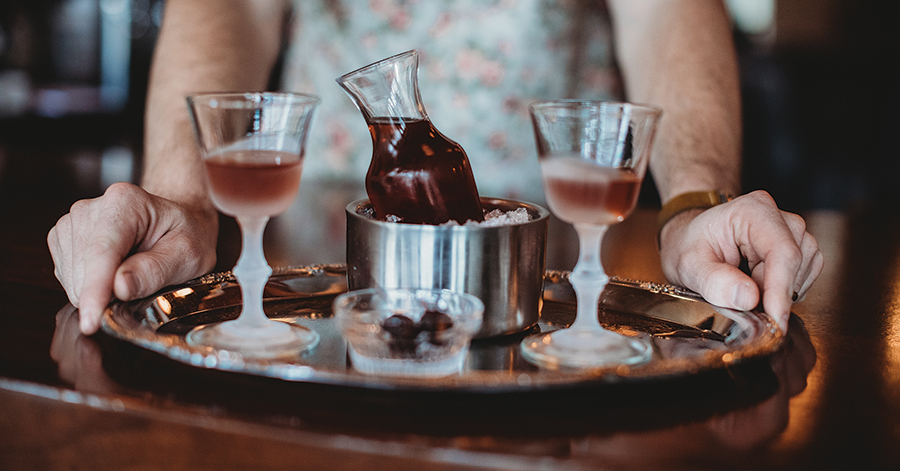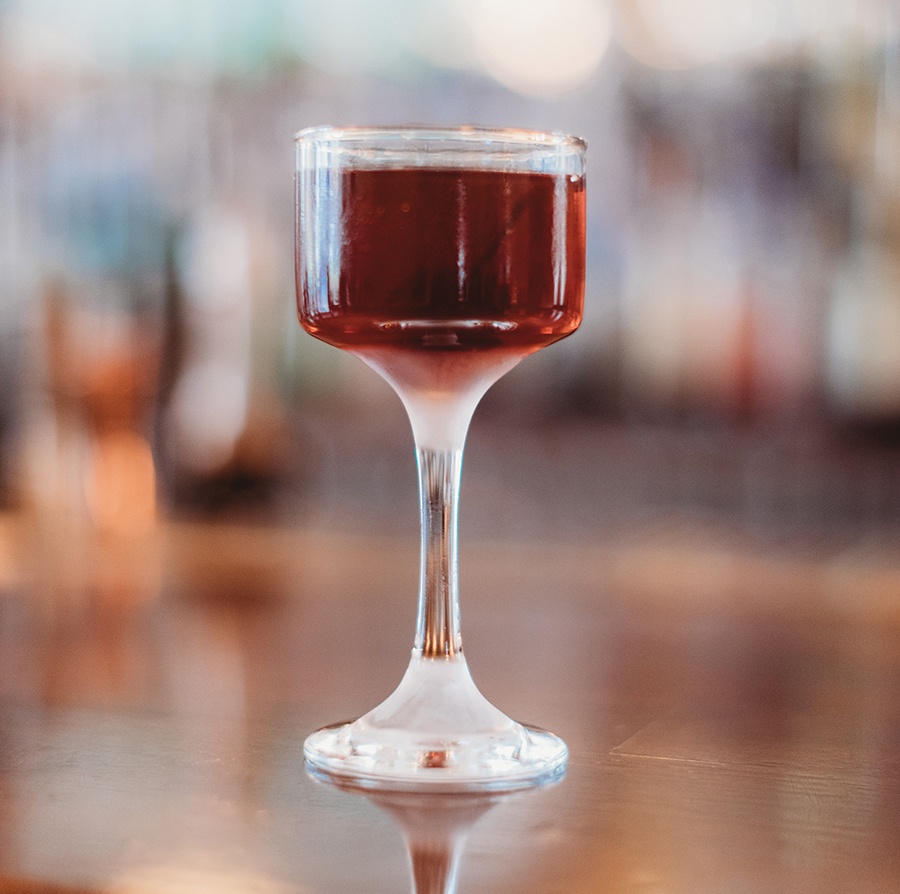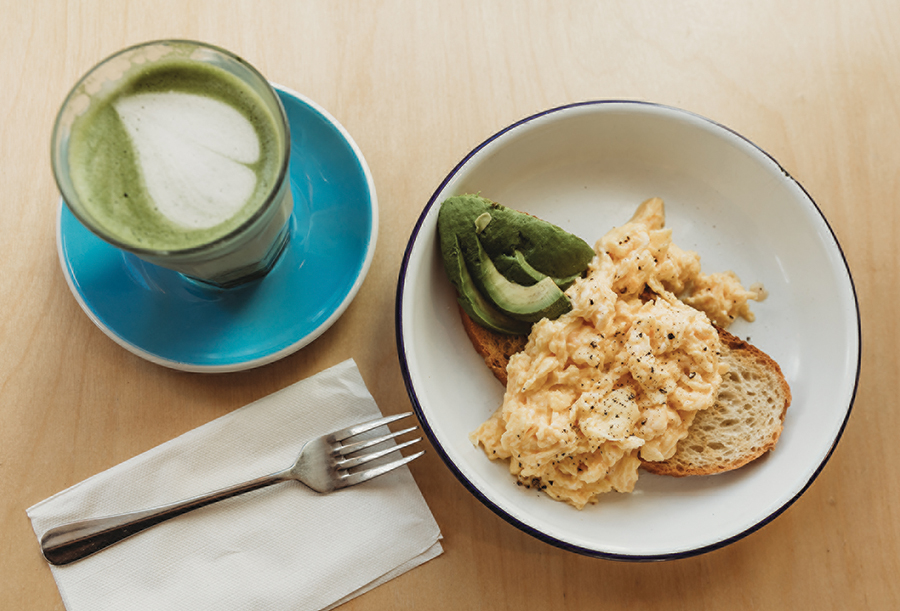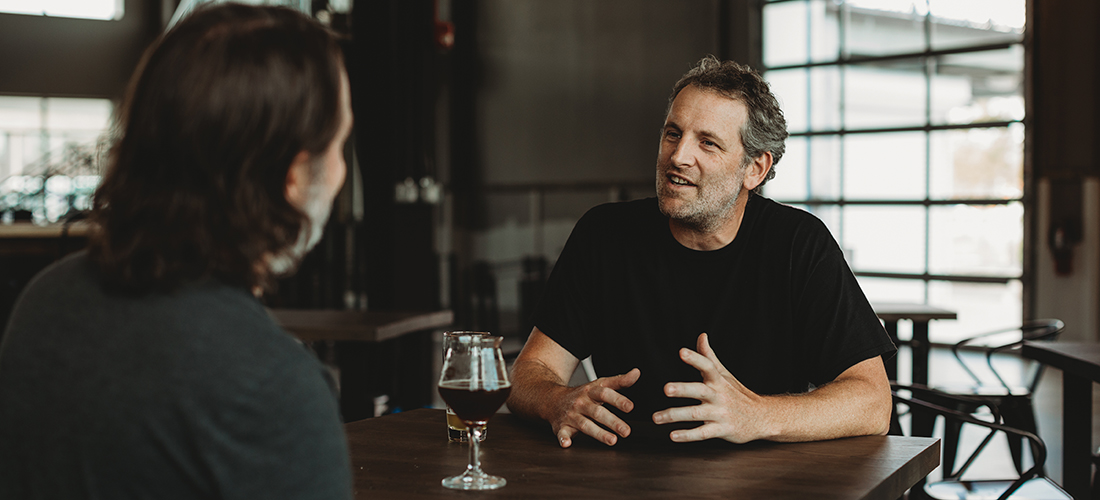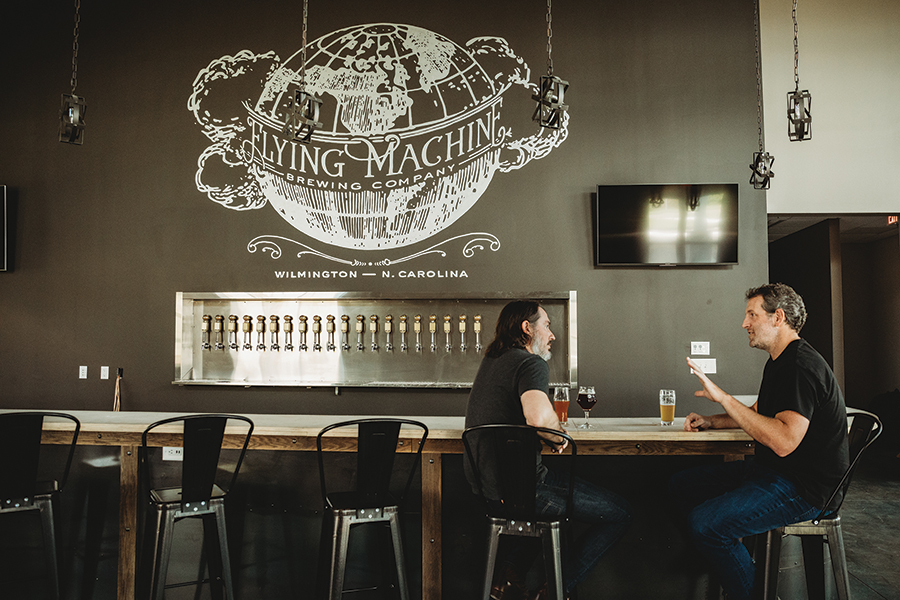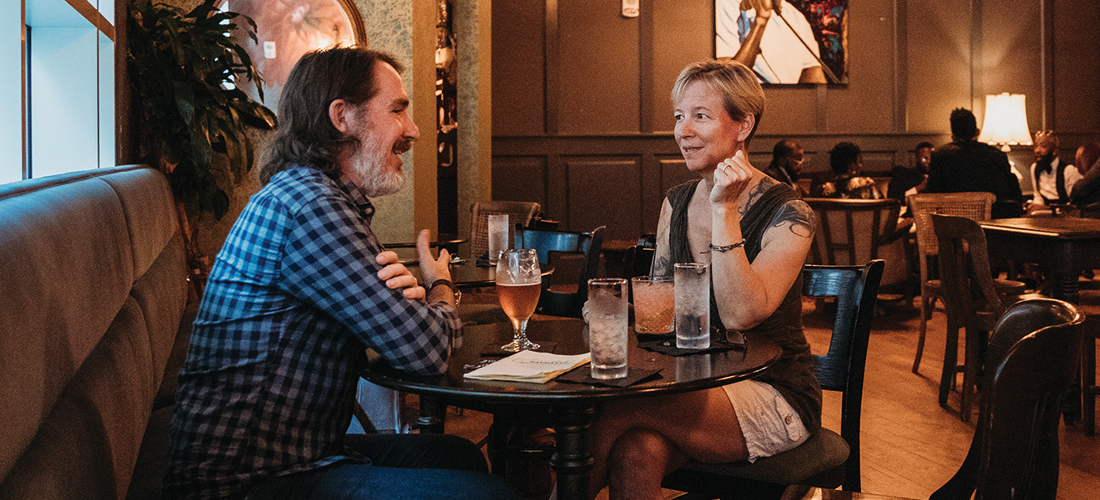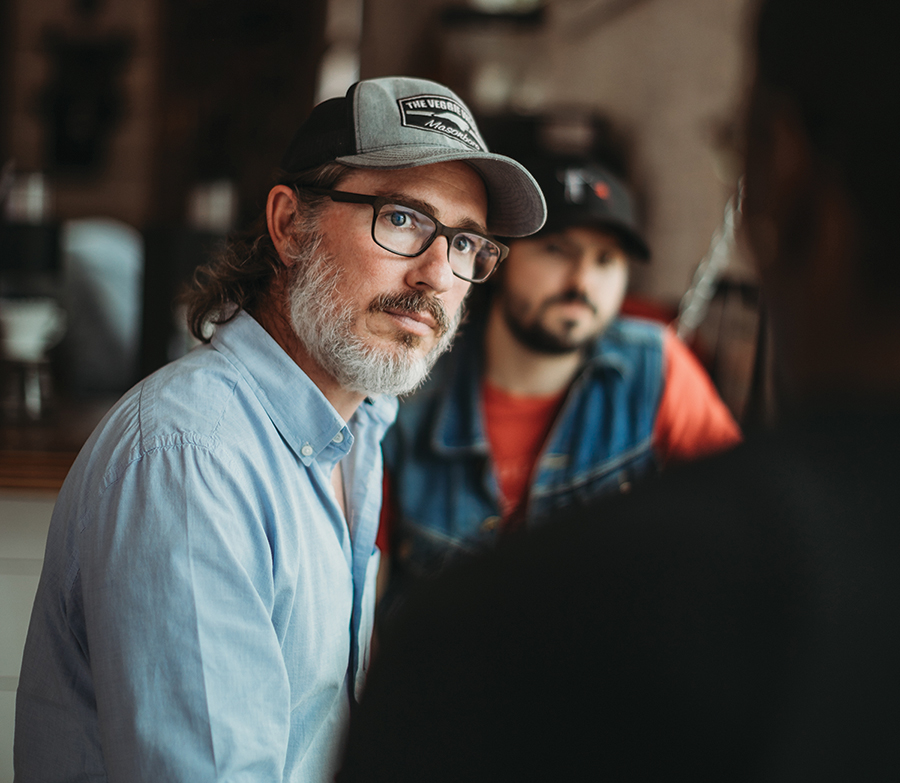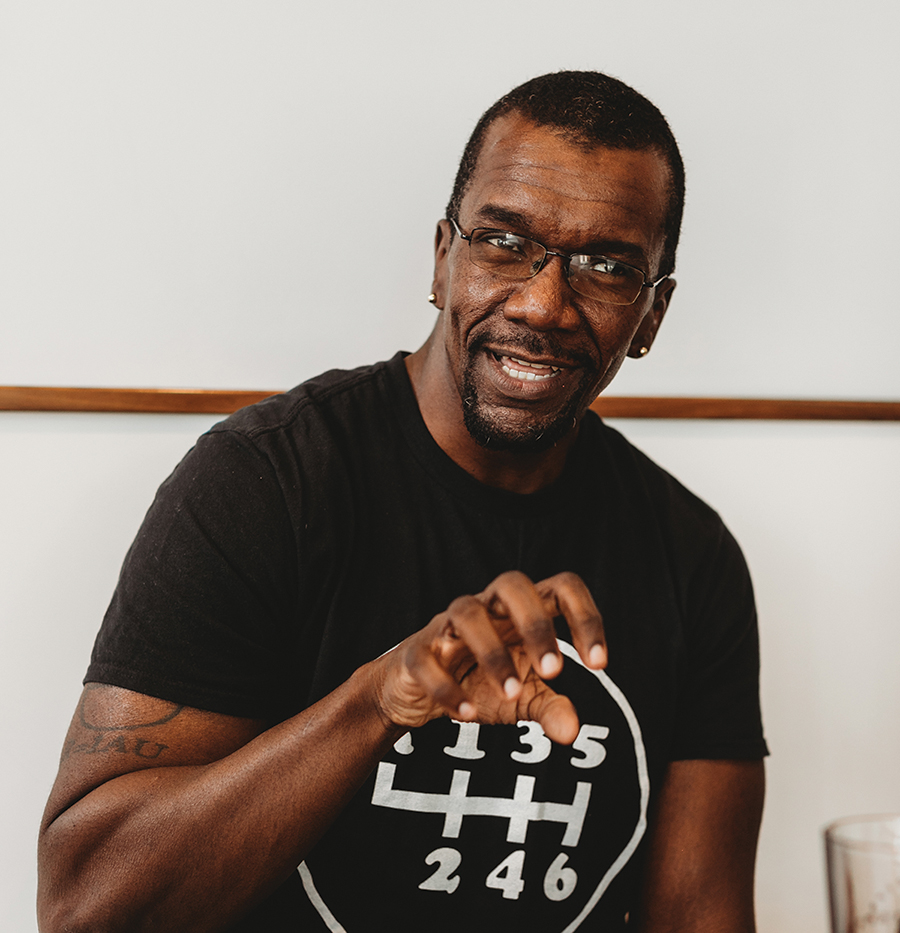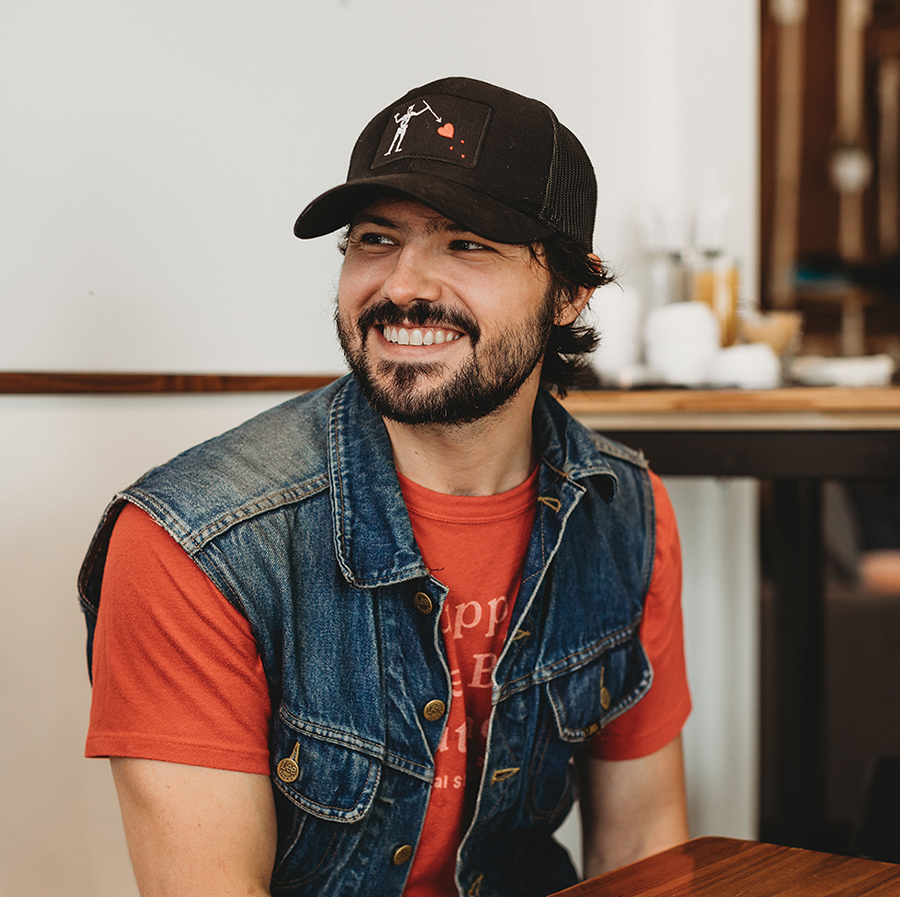Pulling the Thread
In Asheville, learning the untold story with Denise Kiernan
By Wiley Cash • Photographs by Mallory Cash
My friendships with writers are unlike other friendships I have. Most solid, enduring relationships take years to build. This is true of my longest friendships, but it is not true of my friendships with writers; these relationships are intense and honest from the moment of inception. I have often wondered what sets writer friendships apart, and I have decided that it is a combination of our solitary work and our inclination toward inquiry. People who spend so much time alone have a lot to share when they get together. All of this is true of my friendship with New York Times best-selling author Denise Kiernan.
I first met Denise in Asheville, North Carolina, at a literary festival in the summer of 2014. Her book The Girls of Atomic City: The Untold Story of the Women Who Helped Win WWII had been released the previous year, and at the literary festival in Asheville she was easily the best known writer in the lineup. You could not mention her name without someone exclaiming, “Oh, she was on The Daily Show with Jon Stewart!” Denise’s fame and success appeared instantaneous, but like nearly every other writer I have befriended over the years, her journey has been long, circuitous and interesting.
On a chilly day in early December, Denise and I sat down at Little Jumbo, a cocktail bar on Lexington Avenue in Asheville’s Five Points district. The bar is housed in a building that has served a number of purposes since its construction in the 1920s: general store, office space and delivery service, among them. Regardless of what has come before Little Jumbo, co-owners Chall Gray and Jay Sanders have managed to marry the feel of the Prohibition speakeasy to a flair for Gilded Age indulgence. The ceiling is composed of original tin tiles, which reflect the soft light of sconces and chandeliers. The glass-paned front door is set between two huge display windows that house wood-topped tables and leather-wrapped benches. Past the imposing bar, where dozens of bottles hover above dark-stained wood countertops, elegantly appointed sitting areas featuring period appropriate armchairs and sofas await patrons. Little Jumbo has a sophisticated, mysterious feel that is also welcoming and warm.
Chall Gray was behind the bar during our visit, and after Denise and I ordered and received our drinks — an old-fashioned martini for her and a whiskey for me — we found seats by one of the display windows.
“Something just dawned on me,” I said. “I know you as the friend who published The Girls of Atomic City and The Last Castle (the story of the Biltmore House), but I don’t know much about your life and work before those books.”
Denise looked out the window as if she were opening and closing the drawers and cabinets of her memory while searching for a way to respond. The weather had turned dreary. It was raining. Cars rolled by, and people on foot passed our window with their collars upturned. Denise smiled and looked back at me, whatever she had been looking for apparently found.
“That’s a long story,” she said. “But it all started with me playing the flute right down the road in Brevard. I was a rising high school junior, and I was at a summer camp at the Brevard Music Center. Someone there suggested I attend the North Carolina School for the Arts. I did, and it changed my life.”
From there, a story I had never heard and never could have imagined unfolded over the course of the afternoon. After high school, Denise moved to New York City to pursue a pre-med degree from NYU. While there she fell in love with the city, especially its arts scene.
“All of my friends were artists,” she said, “but something was telling me to pursue a practical career. I had decided to apply to medical school, but I wanted to spend the summer in Europe before studying for the MCAT (Medical College Admissions Test).” That summer in Europe extended to more than a year abroad.
“When I came back to the States I wasn’t interested in medical school anymore,” she said. “I was interested in environmental education, so I enrolled in graduate school at the University of Washington.” It was there that a flier for the university’s student newspaper caught her eye. “I had no journalism experience,” she said, “but I had always written, and I wanted to do something with my writing. That was enough for the editor to give me a chance.”
After graduate school, her love for journalism won out over her love for environmental education. “I pursued an internship with The Village Voice,” she said. “And I mean I really pursued it. I called and learned there were no internships available, so I traveled across the country and showed up at The Village Voice’s New York office and asked them in person.” What happened next changed her life.
“I worked under a legendary investigative reporter named Wayne Barrett,” she said, her eyes growing misty. “He passed away a few years ago. He was one of the last great investigative journalists. He didn’t care who you were; if there was a story to be uncovered, he was coming after you.”
Denise, a doggedly determined young person with a nose for news, had met her match: a similarly dogged, seasoned journalist who, like her, did not take well to being told no. Over the next several years as an intern and then as a freelance reporter who regularly published investigative stories in The New York Times, The Village Voice and Ms. Magazine, Denise found herself covering the 1995 United Nations Women’s Conference in Beijing, shooting pool with The Cure, writing about the Beastie Boys, and organizing her own crew as a field producer covering European soccer for ESPN.
“All of those experiences taught me how to chase down leads, to pull at the thread of a story, to organize and focus my work.”
These skills clearly served her well in writing her two best-known books, the aforementioned The Girls of Atomic City and The Last Castle, both of which dig into the backstories of American history that most of us never learn. Girls explains the largely unknown role of the women in Oak Ridge, Tennessee, who helped develop the atomic bomb. Castle plumbs the lives of George and Edith Vanderbilt in the years before and after they built America’s largest private home.
During our conversation, Chall had left the bar and delivered a setup known as the Jumbo Service. Ours was a special chilled Manhattan accompanied by elegant stemware and a side of maraschino cherries, all literally served on a silver platter. Denise and I poured another round of drinks and toasted to stories, both the stories we have written and the stories that have made us writers. PS
Wiley Cash lives in Wilmington with his wife and their two daughters. His latest novel, The Last Ballad, is available wherever books are sold.


